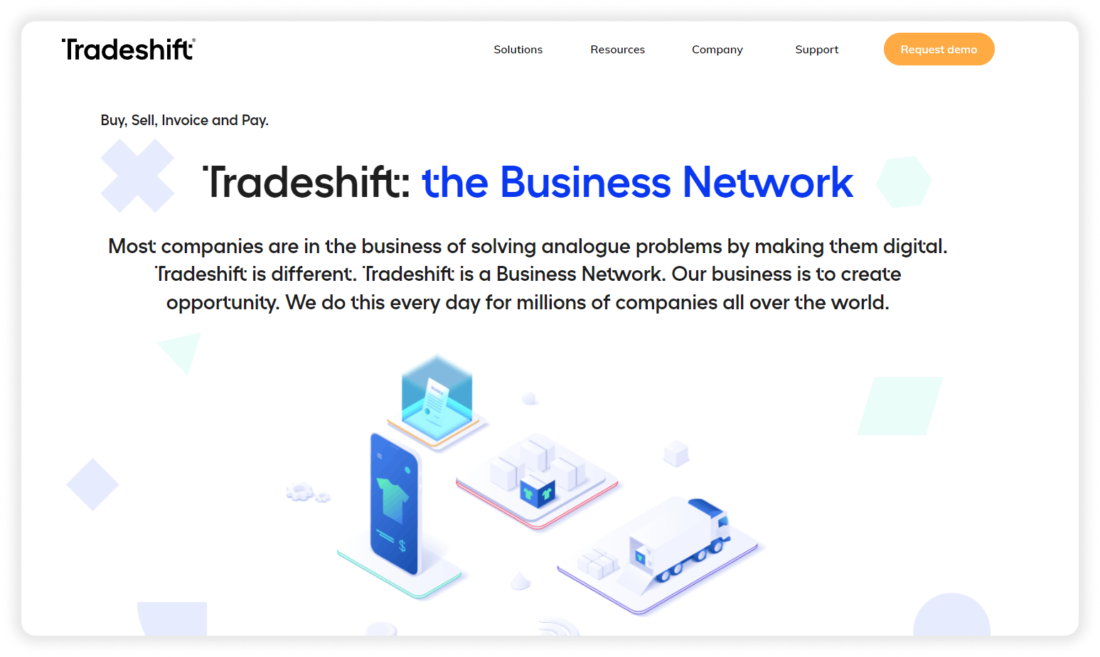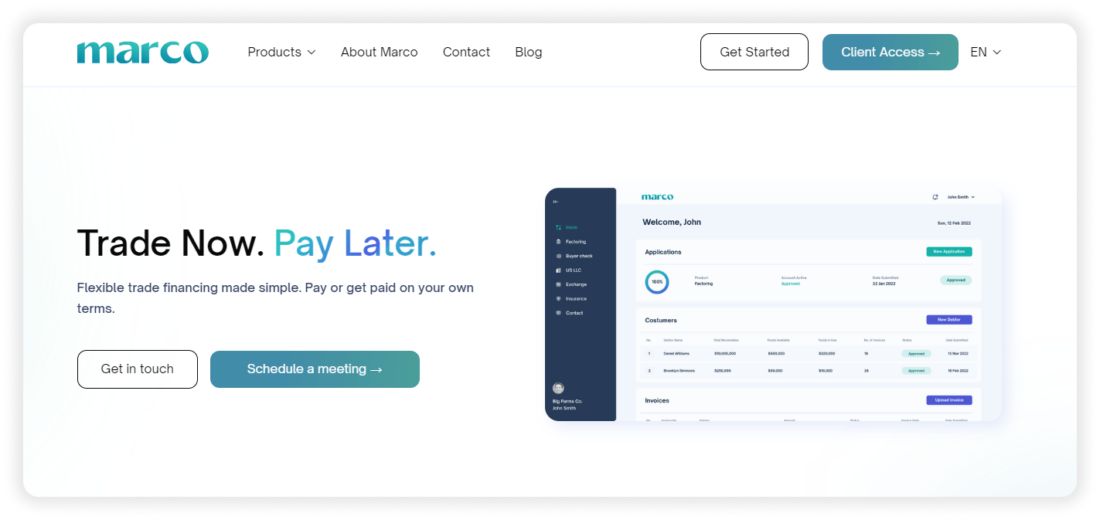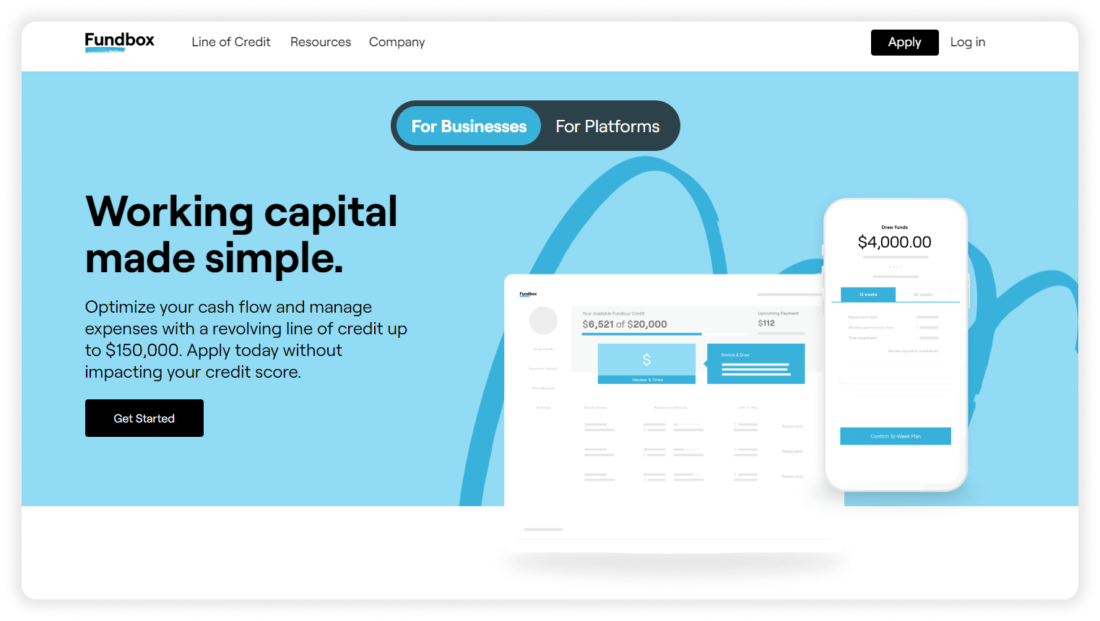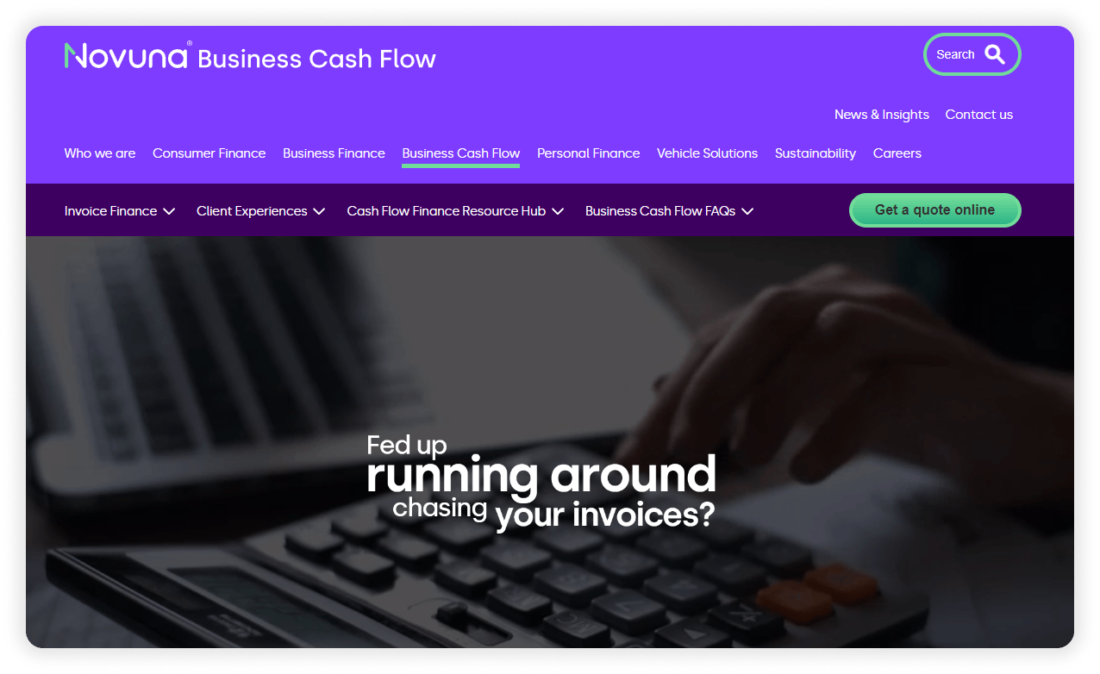Invoice Financing vs Invoice Factoring: How it Works
When it comes to non-traditional financing solutions, invoice financing and invoice factoring are common options to get quick funding.
Businesses consider one of these options when they have to deal with unpaid invoices. For example, most invoices are not paid immediately. if you invoice a client, and the invoice is to be paid 30-90 days after the invoicing date, it results in a situation when a significant amount of funds is locked in accounts receivable. You, as a business owner, may face cash flow gaps that complicate the management of your finances. This is why you may choose to pay a small part of accounts receivable to a factoring or financing company and get cash for unpaid invoices immediately.
Both options provide business owners with a cash advance and allow them to increase their working capital. However, there are some differences between invoice financing and invoice factoring which are important to know to pick the right option.
What you will learn in this post:
What is invoice factoring?
Invoice factoring is a financing type when a business sells its receivables to a factoring company for a cash advance in exchange for a small fee.
The entire process of factoring looks like this:
- The business invoices its client.
- The business sells the unpaid invoice to a factoring company.
- The business receives a part of the invoice value in cash (normally, 70-90% of the invoice value) from the factoring company. This money will help the business to stay afloat until its client pays.
- The factoring company collects the invoice payment.
- The business receives the remaining invoice value minus the fee of the factoring company (the invoice factoring rates vary from 1 to 5% of the invoice value).
There are two types of invoice factoring:
- Recourse – this model comes with lower fees but the business is responsible for buying back all the invoices that the factoring company cannot collect payment on.
- Non-recourse – in this model, the factoring company assumes any risks for invoices, but the fees are higher, too. Non-recourse factoring is suitable for dealing with problematic customers or those who may become financially unstable. It is also suitable for businesses with unstable financing, startups, seasonal businesses, and those who deal with a diverse set of customers.
Advantages of using invoice factoring services
Invoice factoring services offer the following pros to businesses.
Fast access to cash
An invoice factoring loan offers the fastest way to convert outstanding invoices into working capital. If a business needs to invest in growth opportunities, seize new investment and development opportunities, or meet payroll obligations, invoice factoring can be a lifesaver.
Low requirements
A factoring company considers the financial worth of the invoice and the trustworthiness of clients. This is why factoring is a good opportunity to get money for businesses with a low credit score, a history of bankruptcy or insolvency, or other similar issues. While such a business can hardly get a loan from a bank, it can receive cash from a factoring company if the clients who have to pay invoices are trustworthy.
Less work for a business
Once an invoice is sold to a factoring company, the company notifies the customer and handles the entire collection process. With it, the business can save time and resources and focus on its activities such as sales, customer service, marketing, etc.
Disadvantages of invoice factoring
Even though invoice factoring can be a lifesaver for a business, it comes with some drawbacks.
Available only for the B2B sector
Invoice factoring is available only for businesses working with businesses. This option is not available for a business working with retail customers.
High cost
Factoring comes with a fee. The fee may be more expensive than getting a loan from a bank or opting for invoice financing.
Unfavorable for customer relationships
The fact that a third party will collect the invoice payment may strain the relationships with customers. However, if the entire process is managed correctly and carefully, the negative impact may be minimized or even eliminated.
Top invoice factoring platforms
Let’s have a look at some of the invoice factoring companies or platforms and what services they offer to their target customers.
Tradeshift

Tradeshift is a US-based FinTech company launched in 2010. Along with multiple financial services, it offers receivables financing and factoring powered by HSBC.
Marco Financial

Marco Financial is a US-based FinTech platform launched in 2020. Marco provides invoice financing and factoring services for trading companies thus revolutionizing access to international trade.
What is invoice financing
Purchase invoice financing, also called invoice discounting, is another type of alternative financing. This model can be compared to getting a business loan from a financing company, with invoice payment as collateral.
In this case, the process looks as follows.
- A business invoices its customers.
- The business gets a loan from a financing company (normally, 70-90% of the invoice value) that is secured against a business invoice. For this service, a platform charges a small fee of 1.5 – 2.5% of the invoice value.
- The business collects the invoice payment.
- The financing company receives the loan body and the fee.
With this model, the customers of a business do not know that the business works with an invoice financing company. The business alone is responsible for the invoice payment collection.
Advantages using invoice financing
Invoice financing comes with the following benefits.
Potentially lower fees
For businesses with a high credit score, invoice financing rates may be lower than other options for getting financing.
No third party involved in relationships with customers
Only the business is responsible for collecting invoice payments, without any involvement of third parties. This is why business owners may not worry about potentially straining relationships with their customers because of involving a third party in the collection of payments.
Full control over payment collection
The business can manage the invoice payment collection process as it deems appropriate by tailoring its approach to each customer. This is very beneficial with established customers.
Disadvantages of invoice financing
Like each model, invoice financing has some drawbacks.
Repayment obligation
The business has to repay the loan and the fees to invoice financing companies even if its customers delay invoice payments or if it is impossible to collect payments. It can put a strain on the business’s cash flow or even worsen the financial situation and result in bad debt.
High creditworthiness requirements
In this model, the financing company deals with the business, not with its customers. This is why the business’s creditworthiness matters to determine the fee of the financing company and whether invoice financing is possible at all.
Top invoice financing platforms
Now, let’s compare the invoice factoring platformsmentioned above with some of the invoice financing companies and see how they work.
Fundbox

Fundbox is a US-based invoice financing platform launched in 2012 that helps businesses get funding on their outstanding invoices. Fundbox offers invoice financing for small businesses that have 2 months of invoicing history in their accounting software and with at least $100,000 in annual revenue.
Novuna Business Cash Flow

Novuna Business Cash Flow is a UK-based invoice financing and factoring company that works with businesses with a £50,000 minimum turnover. Businesses with a turnover of more than £10 mln can count with a 0.45% fee, while smaller businesses are charged a 5% fee.
Launch your own invoice financing or invoice factoring platform
If you want to start your own invoice factoring platform or build an invoice financing platform check out white-label investment software by LenderKit.
We offer ready-made solutions as well as custom development services, so we can build any kind of investment platform for your requirements. The existing solution provides a solid foundation to build on, so you can get started with an MVP or prototype much faster and scale your business.
If you’d like to learn more about the LenderKit investment software and discuss your project requirements, fill out the contact form and our team will see what can be done.




